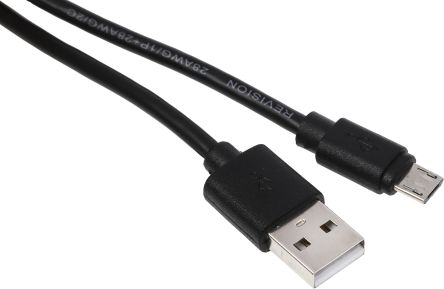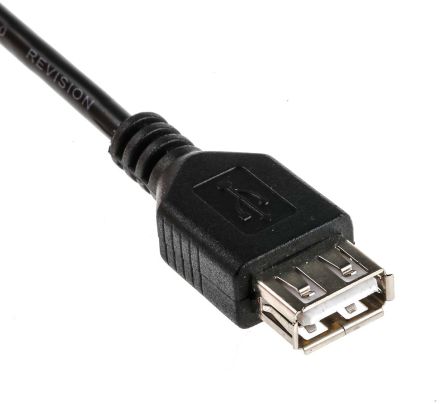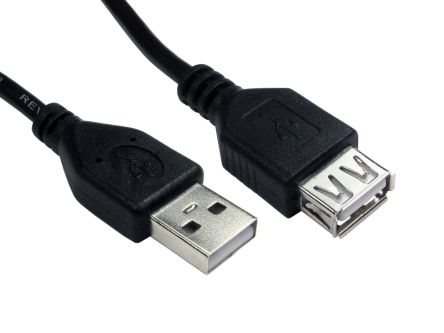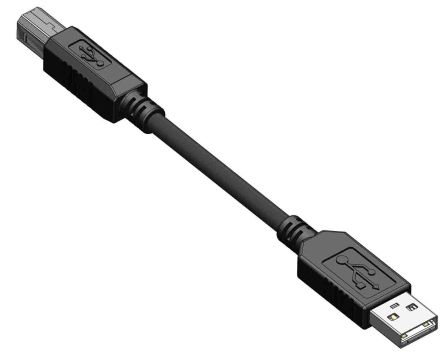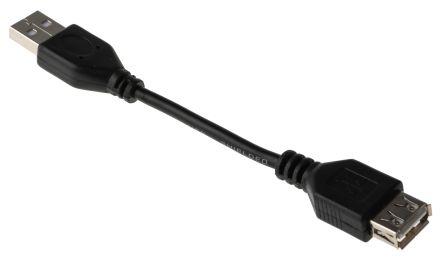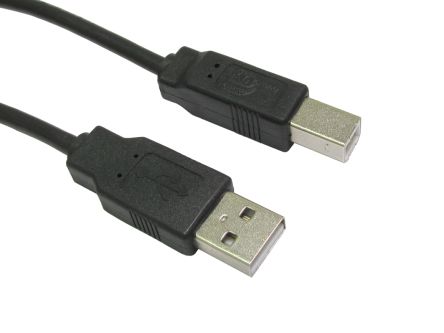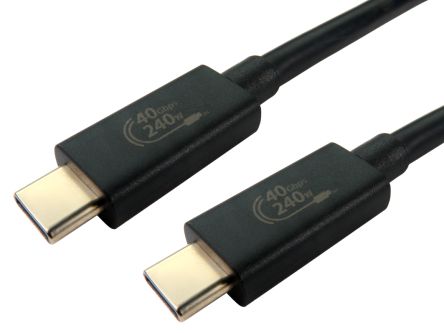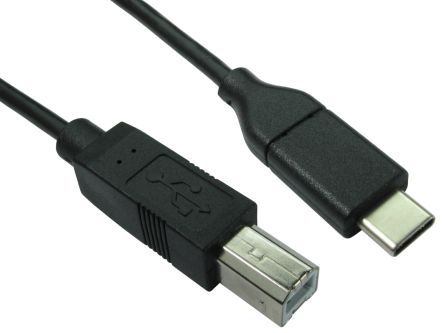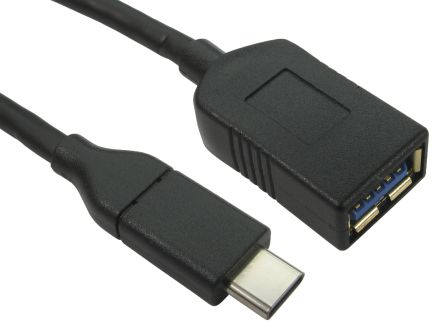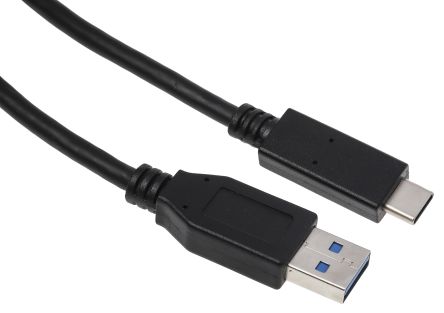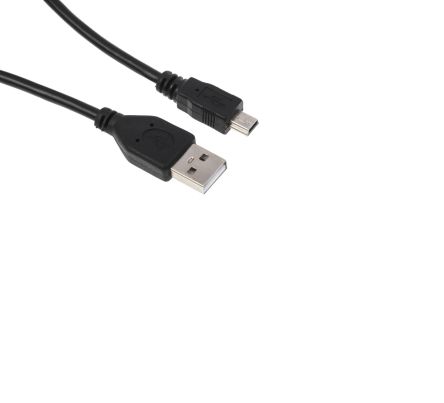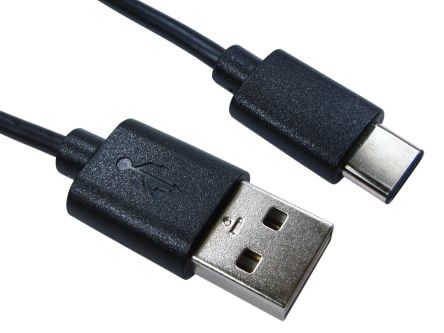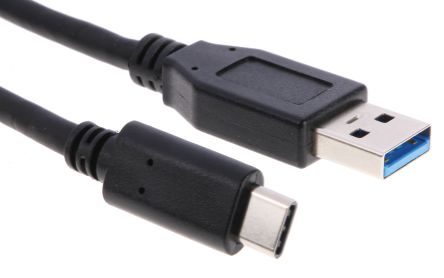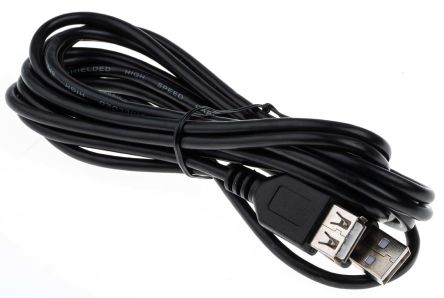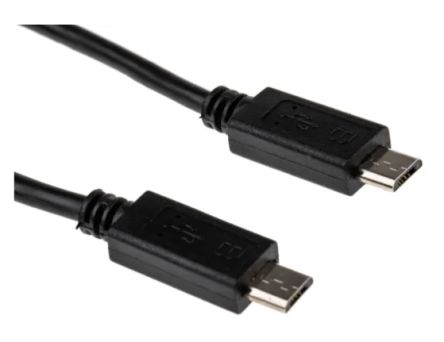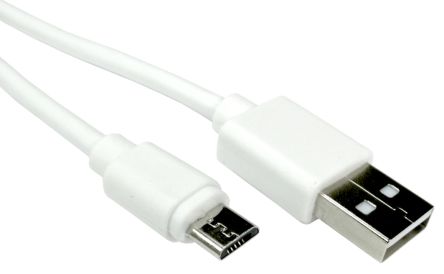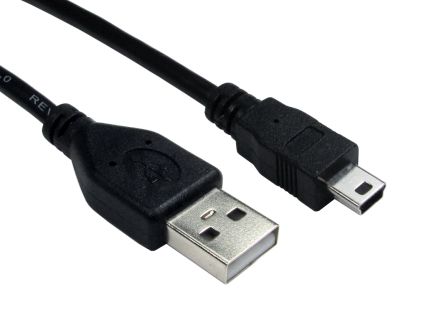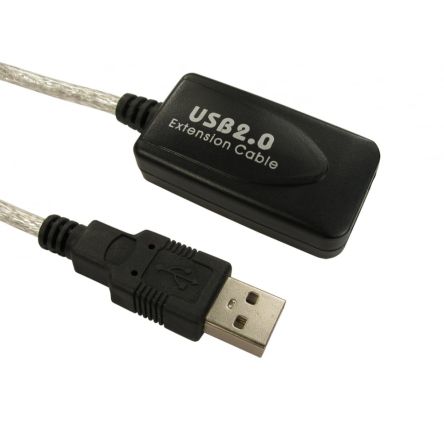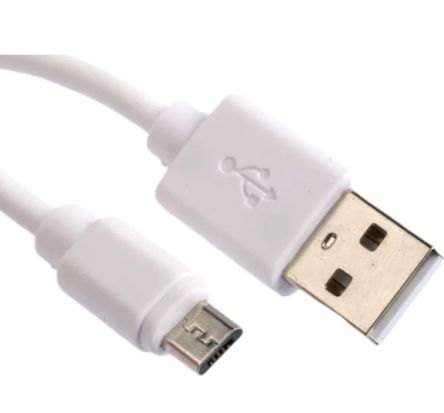- Automation & Control Gear
- Cables & Wires
- Enclosures & Server Racks
- Fuses & Circuit Breakers
- HVAC, Fans & Thermal Management
- Lighting
- Relays & Signal Conditioning
- Switches
- Batteries & Chargers
- Connectors
- Displays & Optoelectronics
- ESD Control, Cleanroom & PCB Prototyping
- Passive Components
- Power Supplies & Transformers
- Raspberry Pi, Arduino, ROCK, STEM Education & Development Tools
- Semiconductors
USB Cables
USB cables, or Universal Serial Bus cables, are widely used for connecting various electronic devices to each other or to a computer. They provide a standardised interface for data transfer, power supply, and peripheral connectivity even in industrial settings. To extend the reach of your USB connection, USB extension cables are also available from RS NZ, offering greater flexibility in device placement.
USB cables have different types and connectors, each designed for specific purposes and device compatibility.
Types of USB Cables
USB Type-A
This is the most common USB connector and is rectangular in shape. It is a cable used for connecting devices like computers, laptops, power adapters, and USB hubs.
USB Type-B
This connector is mostly used for connecting printers, scanners, and other peripheral devices to computers. It has a square shape with bevelled corners. While typically used for direct connections, USB Type-B extension cables are also available for situations where greater distance between devices is needed.
Mini-USB
Mini-USB connectors were popular in the past but are now less common. They come in two forms: Mini-A and Mini-B. Mini-USB cables were commonly used for connecting digital cameras, older smartphones, and other portable devices.
Micro-USB
Micro-USB connectors are smaller and more commonly used in various devices, including smartphones, tablets, digital cameras, Bluetooth speakers, and many other portable devices. They are reversible, allowing insertion in either orientation.
USB Type-C
USB Type-C is a newer and versatile connector that is becoming increasingly popular. It is reversible like Micro USB cables, but has a smaller form factor. USB Type-C cables can be used for charging devices, data transfer, and connecting various peripherals, including extension devices. They support faster data transfer speeds and can deliver more power.
When considering USB Type-C cables, length is an important factor to keep in mind. Available in various lengths and configurations from the RS NZ online catalogue, these cables can reach up to 10m, allowing for greater flexibility in connecting devices at a distance.
Features of USB Cables
USB cables have become essential for connecting and powering a wide range of electronic devices. Here are some of their key features:
- Versatility: USB cables are used for various purposes, including data transfer, charging, and connecting peripherals like keyboards, mice, and printers.
- Compatibility: USB is a universal standard, ensuring compatibility across a wide range of devices and operating systems.
- Speed: USB cables offer different data transfer speeds depending on their version (USB 2.0, USB 3.0, USB 3.1, USB 3.2). Newer versions provide significantly faster data transfer rates. It's important to note that the USB cable you need will depend on the specific devices you want to connect or charge.
- Reversibility: Many newer USB cables, particularly those with USB-C connectors, are reversible, meaning they can be plugged in either way up. This eliminates the frustration of trying to insert the cable in the correct orientation.
- Durability: Quality USB cables are designed to withstand repeated use and bending, ensuring a reliable connection over time, even in industrial environments.
Uses of USB Cables
USB cables are used for a variety of purposes, including:
- Data Transfer: USB cables allow you to transfer data between devices, such as transferring files between a computer and a smartphone, syncing data between a digital camera and a computer, or connecting external storage devices like USB flash drives or external hard drives to a computer.
- Charging Devices: USB cables are commonly used for charging devices like smartphones, tablets, smartwatches, Bluetooth speakers, and other portable electronics.
- Peripheral Connectivity: USB cables are used to connect various peripheral devices to a computer, such as printers, scanners, keyboards, mice, game controllers, webcams, and external monitors.
- Firmware Updates: Many electronic devices, including smartphones, cameras, and gaming consoles, can receive firmware updates to enhance functionality or address security issues.
- Audio and Video Output: USB cables are sometimes used to transmit audio and video signals.
- Programming and Debugging: USB cables are essential for programming and debugging certain electronic devices.
For more information check out our Ultimate Guide to USB Cables.
Connect Faster with Our High-Quality USB Cables
As a trusted supplier and distributor of electronic components, RS NZ offers a wide selection of high-quality USB cables, including extension options, from leading brands like RS Pro, Roline, Bulgin and StarTech.com. Whether you need to connect peripherals, charge devices, or transfer data at high speeds, we have the perfect USB cable for your needs.
Explore our range of USB cables today, featuring various connector types (USB-A, USB-C, Micro-USB) to ensure compatibility with your devices. Don't compromise on speed or reliability, order your USB cables now and experience seamless connectivity. Also, feel free to check out our other product categories like ethernet cables and coaxial cables for your next project.
Ordering & Delivery Information for NZ
RS NZ offers a straightforward online ordering experience that makes it easy to find the perfect USB cable for a wide range of applications. We are dedicated to providing fast and efficient delivery throughout New Zealand. For more details on estimated delivery times and delivery costs, please visit our Delivery Information page.
